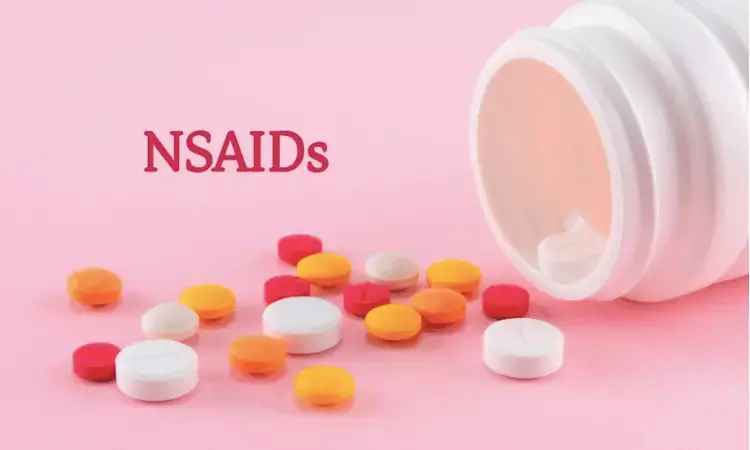- Home
- Medical news & Guidelines
- Anesthesiology
- Cardiology and CTVS
- Critical Care
- Dentistry
- Dermatology
- Diabetes and Endocrinology
- ENT
- Gastroenterology
- Medicine
- Nephrology
- Neurology
- Obstretics-Gynaecology
- Oncology
- Ophthalmology
- Orthopaedics
- Pediatrics-Neonatology
- Psychiatry
- Pulmonology
- Radiology
- Surgery
- Urology
- Laboratory Medicine
- Diet
- Nursing
- Paramedical
- Physiotherapy
- Health news
- Fact Check
- Bone Health Fact Check
- Brain Health Fact Check
- Cancer Related Fact Check
- Child Care Fact Check
- Dental and oral health fact check
- Diabetes and metabolic health fact check
- Diet and Nutrition Fact Check
- Eye and ENT Care Fact Check
- Fitness fact check
- Gut health fact check
- Heart health fact check
- Kidney health fact check
- Medical education fact check
- Men's health fact check
- Respiratory fact check
- Skin and hair care fact check
- Vaccine and Immunization fact check
- Women's health fact check
- AYUSH
- State News
- Andaman and Nicobar Islands
- Andhra Pradesh
- Arunachal Pradesh
- Assam
- Bihar
- Chandigarh
- Chattisgarh
- Dadra and Nagar Haveli
- Daman and Diu
- Delhi
- Goa
- Gujarat
- Haryana
- Himachal Pradesh
- Jammu & Kashmir
- Jharkhand
- Karnataka
- Kerala
- Ladakh
- Lakshadweep
- Madhya Pradesh
- Maharashtra
- Manipur
- Meghalaya
- Mizoram
- Nagaland
- Odisha
- Puducherry
- Punjab
- Rajasthan
- Sikkim
- Tamil Nadu
- Telangana
- Tripura
- Uttar Pradesh
- Uttrakhand
- West Bengal
- Medical Education
- Industry
NSAIDs Don't Worsen COVID 19 Outcomes, Study resolves controversy

Early in the pandemic, it was suggested that pre-existing use of non-steroidal anti-inflammatory drugs (NSAIDs) could lead to increased disease severity in patients with COVID-19. However, a recent study suggests that NSAIDs are not linked with higher mortality or increased severity of COVID-19. The study findings were published in The Lancet Rheumatology on May 07, 2021.
NSAIDs provide effective analgesia and are important in the treatment of inflammatory diseases, particularly in those with the rheumatological disease, and are widely available as over the counter medications. More recent studies have found no associations between NSAID use, admission to hospital, and worse outcomes for patients with COVID-19. To further investigate, Prof Ewen M Harrison and his team conducted a study to characterise the safety of NSAIDs and evaluated whether pre-existing NSAID use was associated with increased severity of COVID-19 disease.
It was a prospective, multicentre cohort study of patients admitted to the hospital with a confirmed or highly suspected SARS-CoV-2 infection leading to COVID-19 between Jan 17 and Aug 10, 2020. The researchers included a total of 78 674 patients across 255 healthcare facilities in England, Scotland, and Wales among which, 72 179 patients had death outcomes available for matching. The major outcome assessed was in-hospital mortality, and secondary outcomes were disease severity at presentation, admission to critical care, receipt of invasive ventilation, receipt of non-invasive ventilation, use of supplementary oxygen, and acute kidney injury. They used logistic regression to estimate the effects of NSAIDs and adjust for confounding variables and, propensity score matching to further estimate effects of NSAIDS while accounting for covariate differences in populations.
Key findings of the study were:
- In this study cohort, 4211 (5·8%) patients were taking systemic NSAIDs before admission to the hospital.
- After propensity score matching, the researchers obtained balanced groups of NSAIDs users and NSAIDs non-users (4205 patients in each group).
- During hospital admission, the researchers observed no significant differences in severity between exposure groups.
- Similarly, after adjusting for explanatory variables, they found no significant difference with NSAIDs use and
◊ Worse in-hospital mortality (matched or 0·95),
◊ Critical care admission (1·01),
◊ Requirement for invasive ventilation (0·96),
◊ Requirement for non-invasive ventilation (1·12),
◊ Requirement for oxygen (1·00), or
◊ Occurrence of acute kidney injury (1·08).
The authors concluded, "NSAID use is not associated with higher mortality or increased severity of COVID-19. Policymakers should consider reviewing issued advice around NSAID prescribing and COVID-19 severity."
For further information:
DOI: https://doi.org/10.1016/S2665-9913(21)00104-1
Dr Kartikeya Kohli is an Internal Medicine Consultant at Sitaram Bhartia Hospital in Delhi with super speciality training in Nephrology. He has worked with various eminent hospitals like Indraprastha Apollo Hospital, Sir Gangaram Hospital. He holds an MBBS from Kasturba Medical College Manipal, DNB Internal Medicine, Post Graduate Diploma in Clinical Research and Business Development, Fellow DNB Nephrology, MRCP and ECFMG Certification. He has been closely associated with India Medical Association South Delhi Branch and Delhi Medical Association and has been organising continuing medical education programs on their behalf from time to time. Further he has been contributing medical articles for their newsletters as well. He is also associated with electronic media and TV for conduction and presentation of health programs. He has been associated with Medical Dialogues for last 3 years and contributing articles on regular basis.
Dr Kamal Kant Kohli-MBBS, DTCD- a chest specialist with more than 30 years of practice and a flair for writing clinical articles, Dr Kamal Kant Kohli joined Medical Dialogues as a Chief Editor of Medical News. Besides writing articles, as an editor, he proofreads and verifies all the medical content published on Medical Dialogues including those coming from journals, studies,medical conferences,guidelines etc. Email: drkohli@medicaldialogues.in. Contact no. 011-43720751


